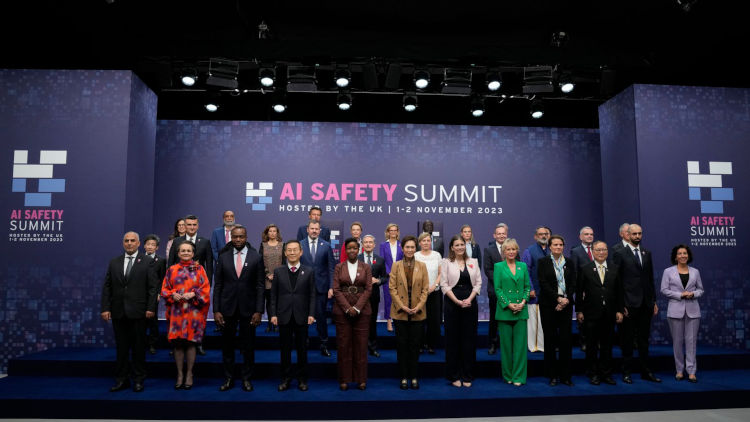
The Bletchley Declaration: Uniting Nations for a Safer Technological Future
Recognizing and Prevent Potential Risks Associated with AI
NEWS News November 1, 2023 Reading time: 2 Minute(s)
The United Kingdom recently hosted a historic event, the world's first AI safety summit, bringing together more than 100 prominent figures from politics and business. The event, which spanned two days, saw the participation of renowned individuals such as OpenAI's Sam Altman, Google DeepMind's Demis Hassabis, and tech visionary Elon Musk. This summit marked a significant milestone in the global effort to ensure the safe and responsible development of artificial intelligence.
The Bletchley Declaration
Named after the historic Bletchley Park, home to Britain's Second World War codebreakers, the Bletchley Declaration was a central focus of the summit. It involved 28 nations, including the world's leading AI powers, agreeing to work collaboratively on addressing the challenges posed by AI. The declaration underscores the need for international cooperation in managing potential AI threats, ensuring the responsible development and deployment of this powerful technology.
The involvement of the United States and China, both global AI leaders, was particularly crucial, given their influence in the field. The agreement also received support from countries such as France, Japan, South Korea, and Saudi Arabia, reflecting the global significance of AI safety.
Key Concerns Addressed
The Bletchley Declaration recognizes a range of potential risks associated with AI, including cybersecurity, biotechnology, misinformation, bias, and privacy. It emphasizes that these risks are best addressed through international cooperation, acknowledging that no single nation can tackle these challenges alone.
Collaborative Efforts
One of the central commitments in the declaration is the collaboration on research into AI safety and the organization of future summits. A virtual summit, co-hosted by the UK and South Korea, is scheduled for six months from the first summit, with France set to host another in-person summit a year from now. These initiatives aim to sustain an inclusive global dialogue and continue research into frontier AI safety.
Challenges and Criticisms
While the Bletchley Declaration is a positive step towards international cooperation in AI safety, it faces criticism for lacking specific details on how threats and opportunities will be prioritized and which value systems policymakers will use. Some experts and organizations argue that more urgency is needed in addressing well-established issues in the AI field.
Additionally, critics contend that the summit did not give enough attention to those most at risk of being impacted by AI, particularly small businesses and creatives, who feel marginalized by the influence of big tech firms.
In conclusion the Bletchley Declaration represents a promising beginning in the global conversation about AI safety. It brings together leading nations to address the challenges posed by artificial intelligence. While it may not satisfy all concerns and criticisms, the commitment to international collaboration and research is a positive step forward. As the summit returns next year with France as the host, and a virtual summit with South Korea in the near future, the world will continue to work together to ensure AI's benefits are harnessed responsibly for the greater good.
(Cover image by AP)
AI safety Bletchley Declaration International collaboration Technology summit Global leaders Future technology Responsible development Cybersecurity Global cooperation Policy challenges Prominent figures Innovation Emerging technologies Diplomacy RSNews RSMax
*Our pages may contain affiliate links. If you buy something via one of our affiliate links, Review Space may earn a commission. Thanks for your support!
CATEGORIES

























COMMENTS